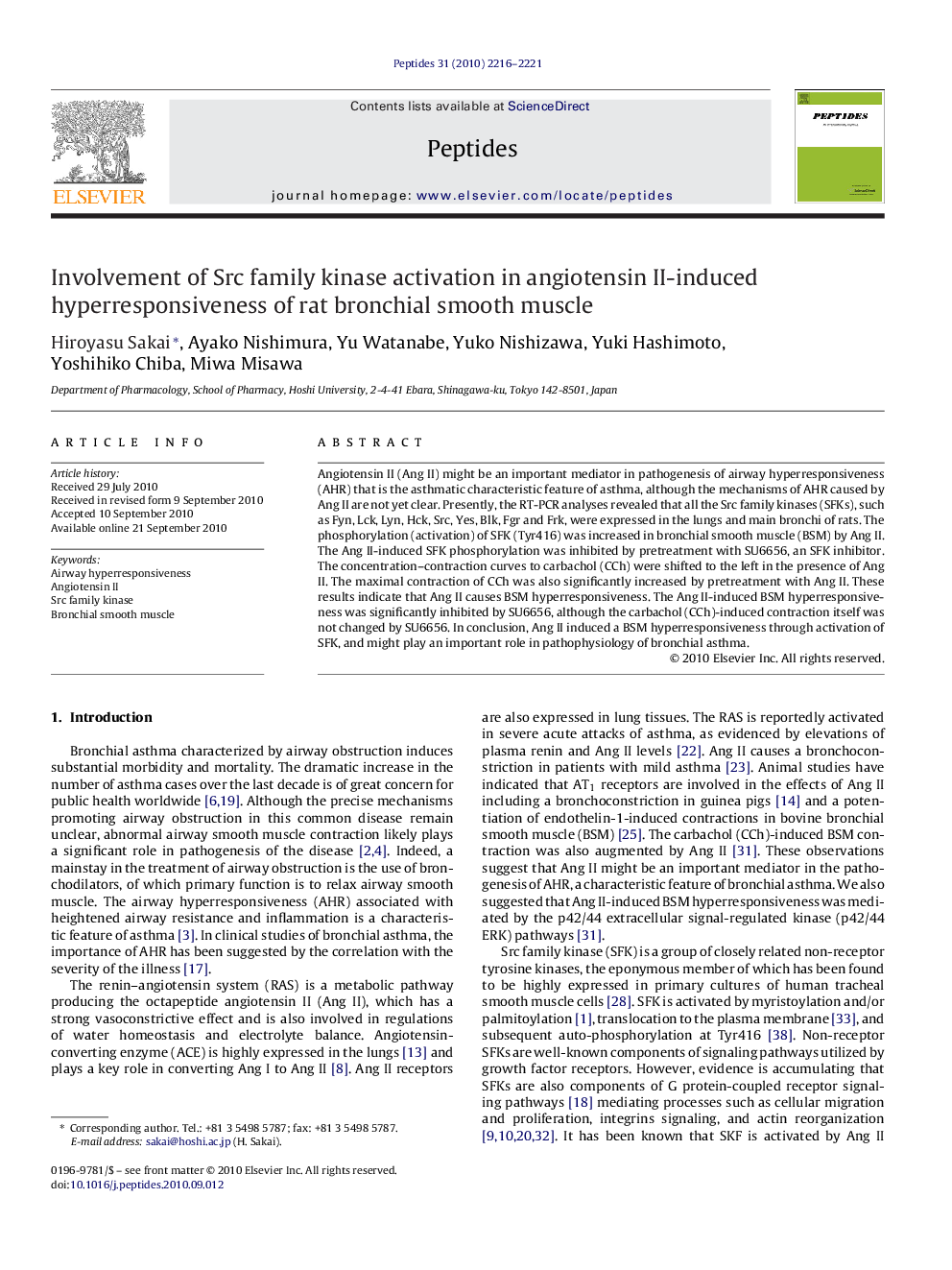| Article ID | Journal | Published Year | Pages | File Type |
|---|---|---|---|---|
| 2006687 | Peptides | 2010 | 6 Pages |
Angiotensin II (Ang II) might be an important mediator in pathogenesis of airway hyperresponsiveness (AHR) that is the asthmatic characteristic feature of asthma, although the mechanisms of AHR caused by Ang II are not yet clear. Presently, the RT-PCR analyses revealed that all the Src family kinases (SFKs), such as Fyn, Lck, Lyn, Hck, Src, Yes, Blk, Fgr and Frk, were expressed in the lungs and main bronchi of rats. The phosphorylation (activation) of SFK (Tyr416) was increased in bronchial smooth muscle (BSM) by Ang II. The Ang II-induced SFK phosphorylation was inhibited by pretreatment with SU6656, an SFK inhibitor. The concentration–contraction curves to carbachol (CCh) were shifted to the left in the presence of Ang II. The maximal contraction of CCh was also significantly increased by pretreatment with Ang II. These results indicate that Ang II causes BSM hyperresponsiveness. The Ang II-induced BSM hyperresponsiveness was significantly inhibited by SU6656, although the carbachol (CCh)-induced contraction itself was not changed by SU6656. In conclusion, Ang II induced a BSM hyperresponsiveness through activation of SFK, and might play an important role in pathophysiology of bronchial asthma.
Graphical abstractFigure optionsDownload full-size imageDownload as PowerPoint slideResearch highlights▶ Angiotensin II causes SFK activation in bronchial smooth muscle (BSM). ▶ All of the SFK genes were expressed in the lungs and main bronchi. ▶ Angiotensin II causes BSM hyperresponsiveness. ▶ Angiotensin II induces a BSM hyperresponsiveness through activation of SFK.
